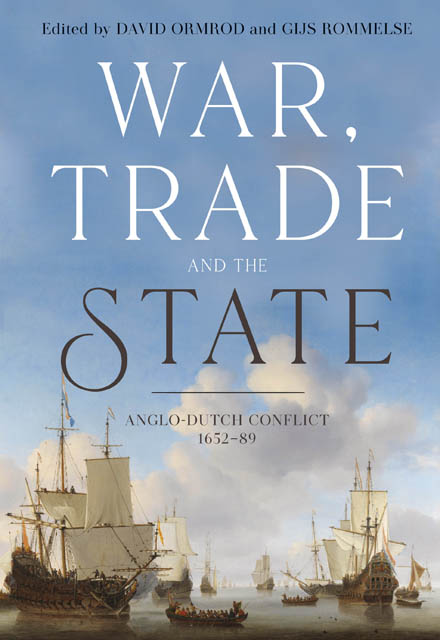10 - Merchant companies at war: the Anglo-Dutch wars in Asia
Published online by Cambridge University Press: 18 January 2023
Summary
… we clashed with the English ships in question around the hook of Masulipatnam, three of which were captured by us and we greeted the rest so well that, so we believe, they were glad to escape from us by night, we being so hampered by our prizes and our own damaged ships that we had enough on our hands simply to keep the fleet together …
The battle between a fleet of thirteen Dutch East India Company (VOC) warships and ten vessels of the English East India Company (EIC) that took place on 29 August 1673 near Petapoli (Nizampatnam) is a rare example of a fully-fledged naval battle between the two powers fought in Asia during the three Anglo-Dutch wars of the seventeenth century. In penning these words, the Dutch commander, Cornelis van Quaelbergen (also: Quaelberg), was not just reporting a victorious battle to his superiors in Batavia. Implicitly, he was also defending his conduct and explaining why he had failed to capture the seven other English ships. Ironically, the battle was very much a sideshow to a more important event taking place further south: the siege of French-held São Tomé de Meliapor (Mylapore) by the combined forces of the VOC and the Qutb Shahi of Golconda. The fleet under Van Quaelbergen had been dispatched north to pick up accumulated goods from the VOC’s important Masulipatnam factory and, if possible, to track down and destroy the English ships that had been spotted in the area. Ironically, after the fall of São Tomé in September 1674, the EIC’s Madras council would vociferously support the destruction of the town and its important defences. Even though England and France were still allies, England not dropping out of the war until February 1674, the Madras council felt a French return to an important fortified city on its doorstep would strain relations between the two powers. The Madras council might have agreed with Johan de Witt’s famous maxim ‘Gallicus Amicus, non vicinus’ (freely translated as ‘France is a good friend, but not a good neighbour’). The complex relations between the three rival companies, the VOC, EIC and Compagnie des Indes heavily supported by the French state, illustrate that warfare between Europeans in Asia was never as straightforward as it might seem.
- Type
- Chapter
- Information
- War, Trade and the StateAnglo-Dutch Conflict, 1652-89, pp. 230 - 247Publisher: Boydell & BrewerPrint publication year: 2020

